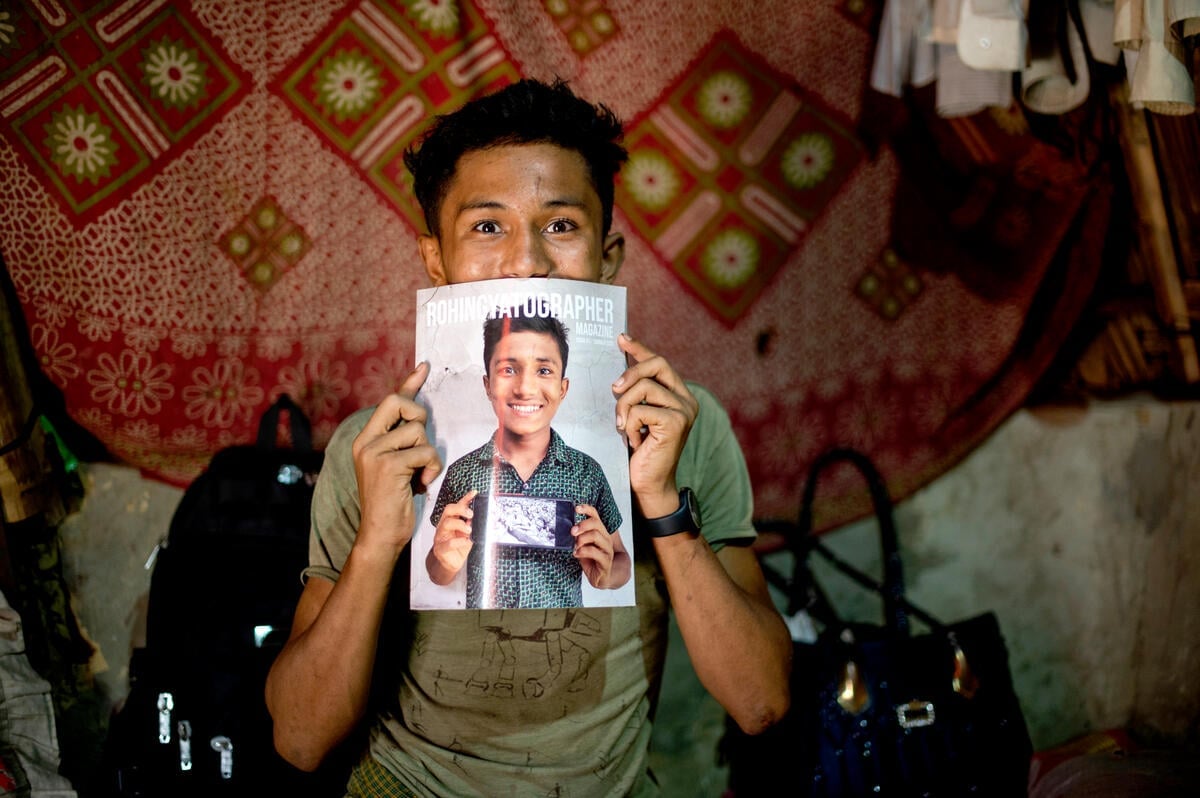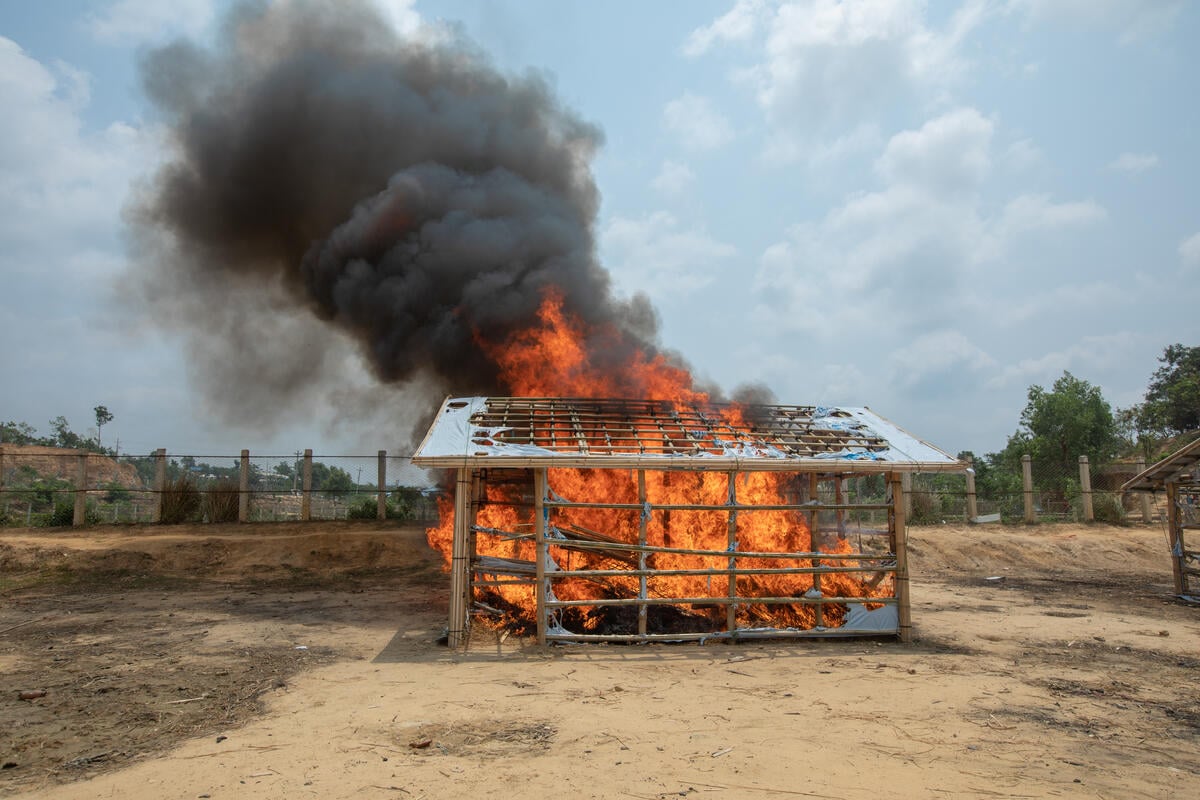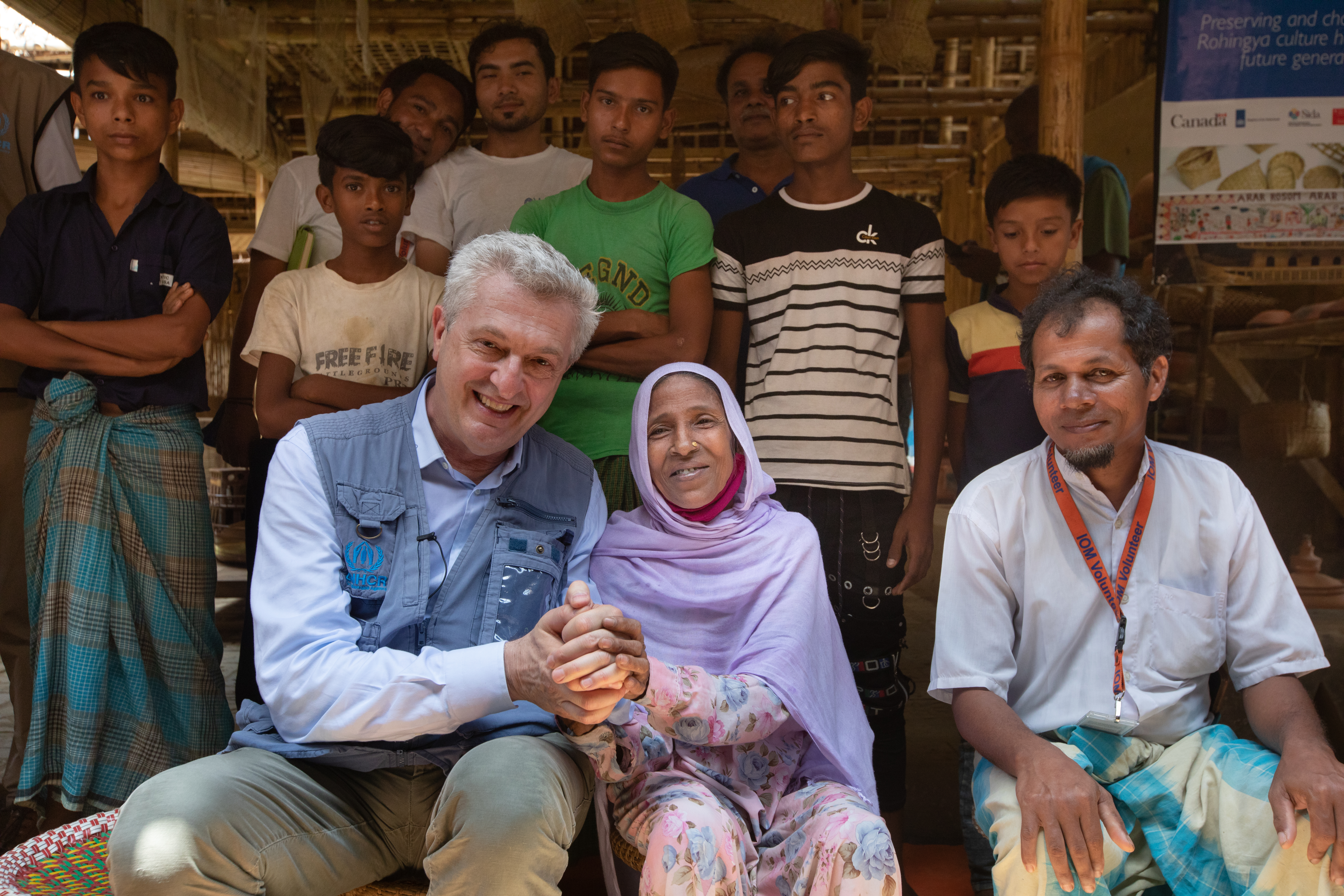Indonesian fishermen rescue Rohingya
Indonesian fishermen rescue Rohingya

BIREUEN, Indonesia – For several days last month, the local fishermen of Aceh, Indonesia, threw offerings of rice and water buffalo bones into the sea, part of their yearly ritual called khanduri laot, during which they recite prayers thanking God for the bounty of the ocean and seeking safety from its dangers.
Weeks earlier, the fishermen themselves had been protectors of the sea.
In separate incidents in April, Acehnese fishermen guided two boats carrying 84 Rohingya refugees to safety on Indonesia’s shores, where they were allowed to disembark, in accordance with the law of the sea and Indonesia’s landmark 2016 Presidential Regulation Concerning the Handling of Foreign Refugees.
Delays in the disembarkation of several thousand refugees and migrants led to dozens of deaths at sea.
They were among the first confirmed maritime movements of Rohingya refugees through the Andaman Sea since May 2015, when interceptions and delays in the disembarkation of several thousand refugees and migrants led to dozens of deaths at sea.
Indonesia’s 2016 Presidential regulation has helped mitigate that risk, as demonstrated by the lives saved by the Indonesian government’s support of the rescue, disembarkation and reception of these two recent groups.
“To prevent loss of life,” said James Lynch, UNHCR’s Regional Representative and Regional Coordinator for South-East Asia, “UNHCR calls on all governments in the region to uphold their maritime obligations and the spirit of the 2016 Bali Declaration by rescuing refugees, disembarking them to the nearest places of safety, and refraining from risky interceptions at sea not intended to save lives.”
Kushida*, 57, was among 79 Rohingya refugees who stepped on dry land in Aceh on 20 April, weeks after fleeing in an open boat from her home in Sittwe, the capital of Myanmar’s Rakhine State, where over 120,000 Rohingya are internally displaced. Denied citizenship and basic rights in Myanmar, an additional 700,000 Rohingya have fled to Bangladesh since August last year, when violence consumed Rakhine State.
Resting in temporary accommodation provided by the local authorities in Bireuen, a city on the northern coast of Aceh, Kushida watches carefully over her 11-year-old granddaughter, Rumana. The girl's mother – Kushida’s sole surviving child – wanted Kushida to take Rumana to Malaysia, where Rumana’s older brother has sought refuge. Kushida agreed; in her mind, the boat journey, even with all its risks, was the only chance to protect Rumana from further violence and persecution. Kushida had already lost five of her sons to the inter-communal violence that first erupted in Sittwe in 2012.
'The people in Aceh have reminded me that God will take care of my innocent sons.'
Soon after Kushida and the other refugees in her boat landed, they were taken to a nearby training centre, where they have been welcomed by the local community and government. UNHCR, the UN Refugee Agency, has registered Kushida, Rumana, and the 77 other Rohingya refugees they travelled with, as well as five refugees in a separate boat who were rescued by Indonesian fishermen on 6 April, but only after as many as 10 people on their vessel had died or gone missing at sea.
UNHCR is currently working with local government bodies, the national Red Cross Society – Palang Merah Indonesia – and a host of other partners to provide aid to the refugees in Aceh and restore their links to family members in other countries. UNHCR is also advocating for the Government of Myanmar to take measures to address the root causes that compel Rohingya refugees to embark on such dangerous journeys.
In the meantime, local Acehnese in Bireuen have embraced the refugees with donations of food, clothing, and medication, just as they did when nearly 1,000 Rohingya refugees arrived in Aceh in May 2015.
“The people in Aceh have reminded me that God will take care of my innocent sons,” said Kushida, taking a deep breath. “My grandchildren are my only hope now.”
*Names have been changed for protection reasons.









